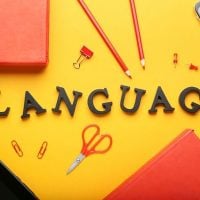Southeast Asia is a region rich in diversity, culture, and potential, yet it faces numerous challenges that require innovative solutions and sustainable development strategies. Non-Governmental Organizations (NGOs) play a crucial role in addressing these challenges, often relying on grants and funding from various sources to implement their programs effectively. Understanding the landscape of grant providers in this region is essential for NGOs seeking financial support.
This article explores some of the most prominent grant providers in Southeast Asia, highlighting their focus areas, application processes, and the types of projects they typically fund. The landscape of grant funding in Southeast Asia is dynamic and multifaceted, with a mix of international foundations, government agencies, and regional organizations. Each grant provider has its unique priorities and criteria for funding, making it imperative for NGOs to align their proposals with the specific goals of these organizations.
By tapping into the resources offered by these grant providers, NGOs can enhance their capacity to deliver impactful programs that address pressing social, economic, and environmental issues in the region.
The Asia Foundation
Grant Funding for Innovative Approaches
The Asia Foundation provides grants to NGOs that demonstrate innovative approaches to addressing local challenges and fostering sustainable development.
Understanding Local Context
One of the key strengths of The Asia Foundation is its deep understanding of the local context in which it operates. The foundation collaborates closely with local partners to identify pressing issues and develop tailored solutions. NGOs seeking funding from The Asia Foundation should emphasize their knowledge of local dynamics and their ability to engage communities effectively.
Collaborative Proposals
Additionally, proposals that highlight collaboration with other stakeholders, such as government agencies or private sector partners, are often viewed favorably.
The Ford Foundation
The Ford Foundation is a global leader in philanthropy, known for its commitment to social justice and human rights. With a significant presence in Southeast Asia, the foundation supports initiatives that promote equality, empower marginalized communities, and advance democratic governance. The Ford Foundation provides grants to NGOs that align with its mission and demonstrate a clear impact on social change.
When applying for funding from the Ford Foundation, NGOs should focus on articulating their vision for social justice and how their projects will contribute to systemic change. The foundation values innovative approaches that challenge existing power structures and promote inclusivity. Additionally, NGOs should be prepared to demonstrate their capacity for effective implementation and evaluation of their projects.
Building strong relationships with local communities and stakeholders can also enhance an NGO’s credibility and increase its chances of securing funding.
Japan International Cooperation Agency (JICA)
The Japan International Cooperation Agency (JICA) is a governmental agency that plays a vital role in Japan’s international development efforts. JICA provides financial assistance and technical support to various projects across Southeast Asia, focusing on areas such as infrastructure development, disaster response, and capacity building. NGOs can benefit from JICA’s funding by aligning their projects with Japan’s development priorities in the region.
To successfully secure funding from JICA, NGOs should demonstrate how their initiatives contribute to sustainable development goals (SDGs) and address specific challenges faced by communities in Southeast Asia. Proposals that emphasize collaboration with local governments and other stakeholders are particularly appealing to JICA, as they reflect a commitment to building local capacity and ensuring project sustainability. Additionally, NGOs should be prepared to provide detailed project plans that outline objectives, timelines, and expected outcomes.
Asian Development Bank (ADB)
The Asian Development Bank (ADB) is a regional development bank dedicated to reducing poverty and promoting sustainable economic growth in Asia. ADB provides loans, technical assistance, and grants to support various development initiatives across Southeast Asia. NGOs can access ADB funding by proposing projects that align with the bank’s strategic priorities, which include infrastructure development, environmental sustainability, and social inclusion.
When seeking funding from ADB, NGOs should focus on demonstrating the potential impact of their projects on poverty reduction and economic development. Proposals should include comprehensive data and analysis to support claims about the project’s effectiveness. Additionally, NGOs should highlight their experience in project implementation and their ability to collaborate with government agencies and other stakeholders.
ADB values partnerships that leverage resources and expertise to achieve common goals.
United Nations Development Programme (UNDP)
Aligning with the Sustainable Development Goals
To secure funding from UNDP, NGOs must ensure that their proposals align with the UN’s Sustainable Development Goals (SDGs). This involves demonstrating how their initiatives contribute to achieving these global objectives. Proposals should clearly outline the project’s goals, target beneficiaries, and expected outcomes.
Key Components of a Successful Proposal
A successful proposal should emphasize the NGO’s capacity for monitoring and evaluating project impact. UNDP places significant importance on accountability and results-oriented approaches, so NGOs must be able to demonstrate their ability to track progress and achieve tangible results.
Accessing UNDP Funding Opportunities
NGOs can access UNDP funding through various mechanisms, including small grants programs and larger project-based funding opportunities. By understanding the UNDP’s funding priorities and requirements, NGOs can increase their chances of securing funding for their projects. This involves staying up-to-date with the latest funding opportunities and ensuring that their proposals meet the UNDP’s strict criteria.
Oxfam
Oxfam is an international confederation of NGOs focused on alleviating poverty and addressing social injustices worldwide. In Southeast Asia, Oxfam supports initiatives that promote economic empowerment, gender equality, disaster resilience, and advocacy for marginalized communities. Oxfam provides grants to local NGOs that demonstrate a commitment to these values and have a clear plan for implementing impactful projects.
When applying for funding from Oxfam, NGOs should emphasize their grassroots connections and understanding of local issues. Proposals should highlight how the project will empower communities and promote social change. Oxfam values collaboration and encourages partnerships between local organizations to enhance project effectiveness.
Additionally, NGOs should be prepared to articulate their strategies for engaging beneficiaries throughout the project lifecycle.
Bill & Melinda Gates Foundation
The Bill & Melinda Gates Foundation is one of the largest philanthropic organizations globally, with a strong focus on health, education, and poverty alleviation. In Southeast Asia, the foundation supports initiatives aimed at improving health outcomes, enhancing agricultural productivity, and promoting financial inclusion. NGOs seeking funding from the Gates Foundation must align their projects with the foundation’s strategic priorities and demonstrate a clear potential for impact.
To increase the likelihood of securing funding from the Gates Foundation, NGOs should present well-researched proposals that outline innovative solutions to pressing challenges in health or education. The foundation values data-driven approaches and expects organizations to provide evidence of past successes or pilot projects that have yielded positive results. Additionally, NGOs should emphasize their capacity for collaboration with other organizations or government entities to maximize resources and achieve shared goals.
In conclusion, navigating the landscape of grant providers in Southeast Asia requires a strategic approach for NGOs seeking funding opportunities. By understanding the priorities of various grant providers such as The Asia Foundation, Ford Foundation, JICA, ADB, UNDP, Oxfam, and the Bill & Melinda Gates Foundation, organizations can tailor their proposals effectively to secure financial support for their initiatives. Engaging with local communities, demonstrating impact potential, and fostering collaborations are essential strategies for enhancing an NGO’s chances of success in this competitive funding environment.









































